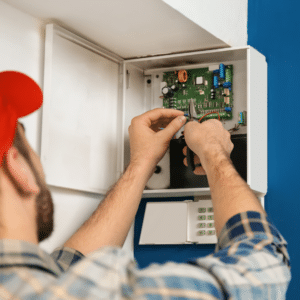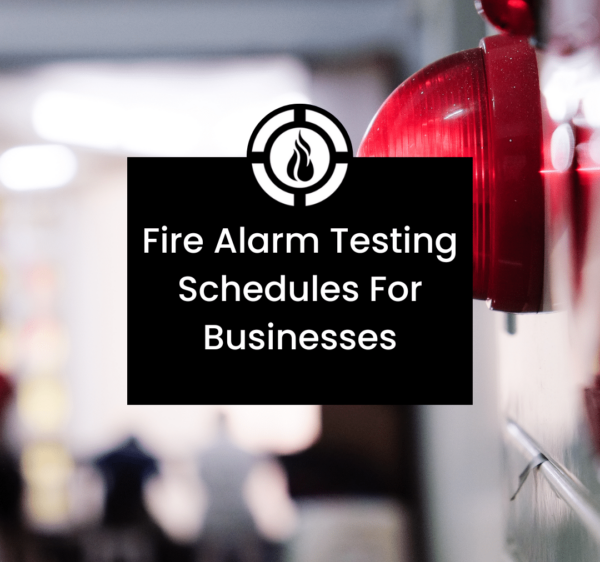If the thought of a test makes your palms sweaty, relax! DynaFire can handle your Miami fire alarm testing schedule without you having to crack a book.
Testing your business’s fire alarm is the best way (really, the only way) to know it’s working as it should. And if there’s ever a fire, it has to work, right? That’s where we come in. Our Miami fire alarm testing team has been studying for almost 20 years and is ready to tackle all your Fire & Life Safety needs.
Fire Alarm System Components
When we say “fire alarm system,” what does that mean? What components make up your fire alarm, and what needs to be tested?
- Smoke Detection – Smoke and heat detectors are the watchers on the wall, so to speak. They let the rest of your system know when a fire may be present.
- Alarm Signals – Once a fire has been detected, it should trigger your alarm signal. These signals can be loud blasts, auditory cues, flashing lights, or a combination.
- Emergency Communication – The next step is for the emergency communication to reach the fire department. (Keep reading if you want some info about the fastest, most reliable alarm monitoring system available.)
- Fire Sprinkler System – As your alarm is signaled, your fire sprinkler system should dispense water to extinguish the fire.
Every aspect of your fire alarm system is crucial to your overall Fire & Life Safety strategy. Trust DynaFire’s Miami fire alarm testing to ensure your business and your building occupants will be protected.
How Often Should Your Fire Alarm System Be Tested?
While inspection and testing schedules for each system may differ depending on their type, local regulations, and the Authority Having Jurisdiction (AHJ), the National Fire Protection Association (NFPA) has outlined general scheduling guidelines.
According to NFPA standards, your fire alarm systems should undergo thorough inspections and tests weekly, monthly, quarterly, semi-annually, annually, every five years, and every ten years. Our licensed fire protection technician can handle each of these inspections and tests.
What’s Involved In Professional Miami Fire Alarm Testing?
Professional fire alarm system testing involves a series of comprehensive checks and procedures to ensure the system’s proper functionality. This typically includes:
- Visual Inspection: Examining the fire alarm system’s components, such as control panels, detectors, alarms, and annunciators, to check for physical damage or signs of wear.
- Functional Testing: Activating different system components to ensure they operate as intended. This may involve testing smoke detectors, heat detectors, manual pull stations, and audible/visual alarms to verify they activate correctly.
- Signal Transmission Testing: Verifying signals correctly transmit from the alarm system to the monitoring station or emergency services, ensuring the communication pathways function effectively. Here’s where DynaNet comes in – it is the best in wireless alarm monitoring and emergency communication.
- Battery Testing: Checking the backup batteries to ensure they have sufficient power and can support the alarm system in case of a power outage.
- Verification of Compliance: Confirming that the system complies with local fire codes, manufacturer guidelines, and NFPA standards.
- Documentation: Maintaining records of all tests, inspections, repairs, and system changes for regulatory compliance and future reference.
- Maintenance Recommendations: Recommending necessary repairs, replacements, or system upgrades based on the inspection findings to maintain optimal system performance.
Professional fire alarm system testing ensures the system’s reliability and effectiveness in detecting and alerting occupants to potential fire hazards.
We Can Help You Ace Your Miami Fire Alarm Testing
Set your business up for success with fire alarm testing from the pros at DynaFire—no late-night cram session required. Contact us today to schedule your fire alarm test and feel confident that you and your building occupants are protected.






